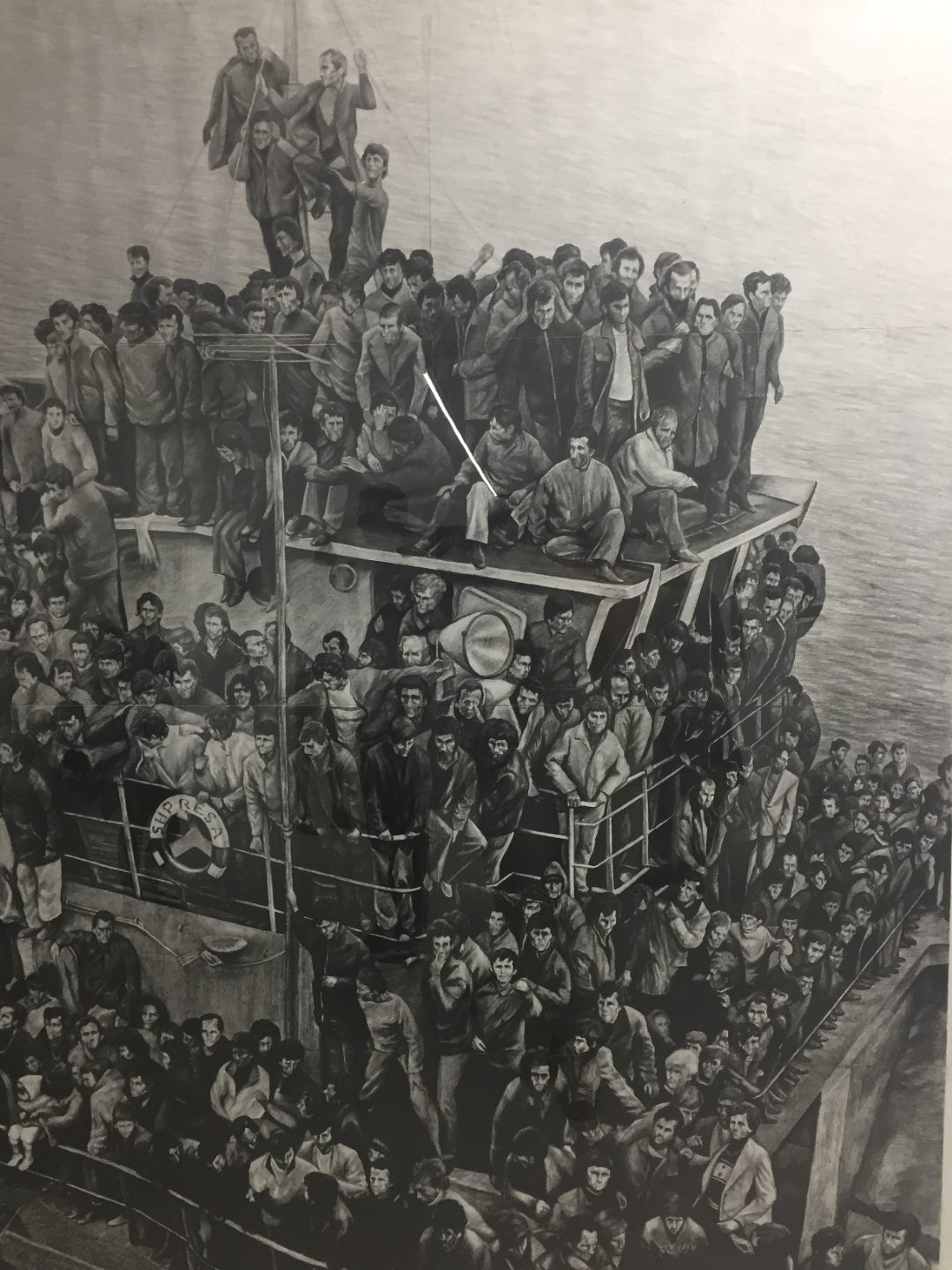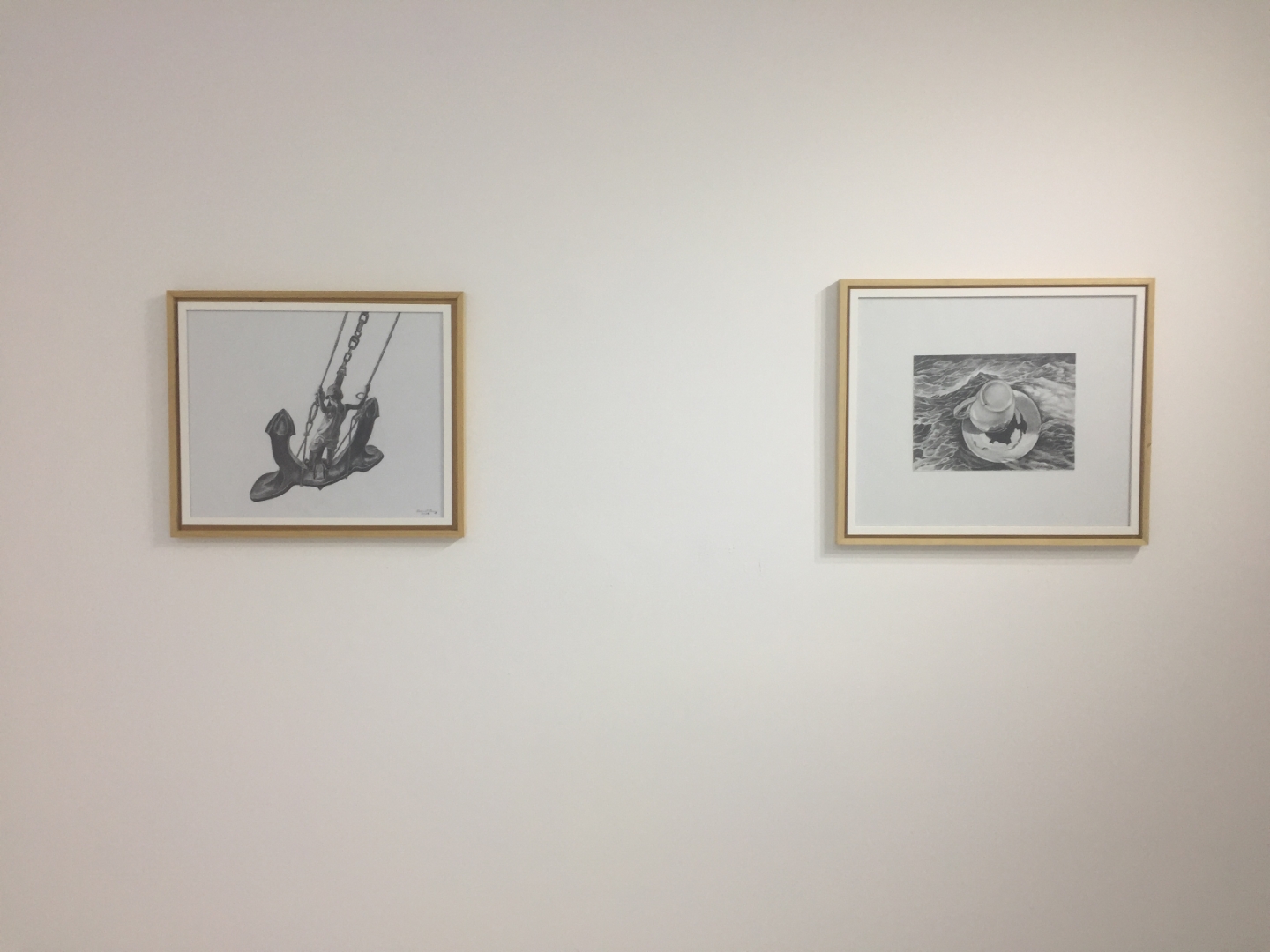The exhibition “Where the roads are paved with gold” was opened during August 2021 at Galeria e Bregdetit in Radhimë, Vlora, and will remain open until September 10th, 2021. This exhibition is the second session of South by the Sea, an annual exhibition of contemporary art through the voices of southern artists. Three of them participated in this second session dedicated to the social movement of Albanians 30 years ago and its invisible traces.

The event that inspired the artistic flow of the three artists Roland Runaj, Niku Alex Muçaj and Vangjush Vellahu, is the emigration of more than 20,000 Albanians to the shores of Italy on August 8, 1991. From Durrës to Bari, the ship named Vlora carried beyond its capacity passengers and the hope for better or minimally different living conditions, for roads paved in gold, according to the imagination of the post-communist Albania and Balkans. The shock of the Italian public of that time, during the television broadcast of the ship’s arrival, resembled the shock caused by fictional images, as the gap between what was transmitted on television and real life became palpable for many of them. The Vlora ship was followed by a very high number of smaller vehicles that crossed the Adriatic with illegal passengers, which can be summed up in about 700,000 Albanians who fled to Italy during the ‘90s.
The exhibition was built as a multifaceted narrative of the personal experiences of the three artists who have experienced emigration.
*Painter Roland Runaj, who works and lives in Vlora, has presented 7 pencil drawings to Galeria e Bregdetit. Among them, the largest shows around 300 portraits of the passengers of the Vlora ship, drawn by the artist over the course of a month. The other 6 drawings present images that are related to emigration and to departure from a more technical point of view. Some of the drawings show objects that are inextricably linked to sea voyage: a paper boat by the sea, a boy swinging on an anchor instead of a seesaw, and a cup floating in the sea, above the saucer. Other drawings deal with the act of leaving in a completely practical dimension: from the beach landscapes near the city of Vlora, the people who have emigrated have left nothing behind. The space they used to occupy has been erased, emptied from the materials, an inexistence which proves how absence can be the strongest presence.
*Niku Alex Muçaj, an Albanian artist based in Basel, is the author of “Lonely Tools”. His creations are diffused throughout the exhibition space of Galeria e Bregdetit and consist of agricultural tools (shovel, scythe, beak, etc.), positioned firmly and vertically on the ground, with the help of a concrete block. These tools were left without a role; they have been abandoned by the immigrants. The work they would accomplish will remain in abeyance in the absence of manpower. Their loneliness and immobility reminds the loss of human potential that follows emigration.
*Berlin-based visual artist Vangjush Vellahu has created the installation “A piece to remember” as a pile of objects scattered on the table. These items were collected by the artist during his travels, some of them belong to him and others have been found. Everything is on the table, starting from travel tickets to information books, glasses, identification documents, bank cards, etc. Secured inside plastic bags, the facilities carry stories that can be imagined by the visitors, but without being confirmed by anyone.





